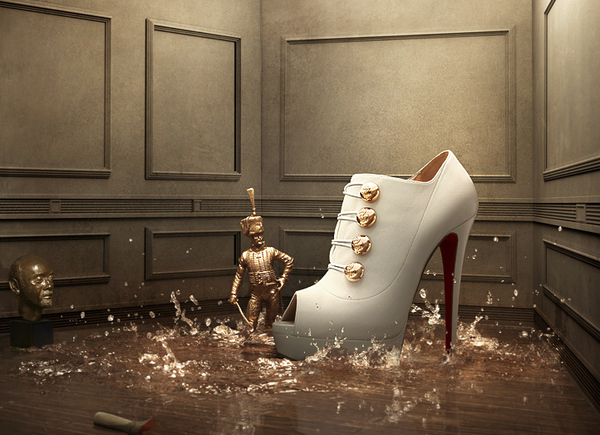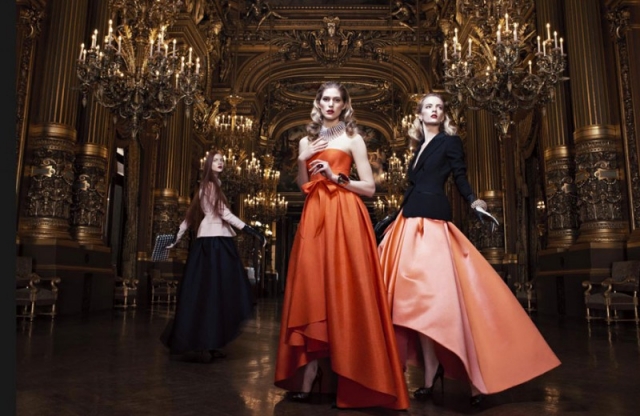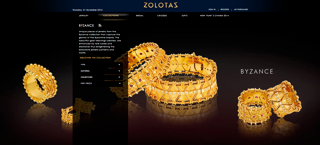Anastasia Balezdrova
The list of priorities of the Greek admirers of luxury does not end with these three categories. They themselves are also accompanied by certain attributes such as an "expensive" house, a "luxury" car, "exotic" trips. In the ranking regarding how they define luxury nowadays the respondents in the survey carried out by the Focus Bari agency have also indicated clothes, money, expensive brands, convenience, quality, tranquillity, beauty, pleasure.
The survey was presented at the second Business of Luxury Conference in Athens. Despite the crisis and the dire financial straits of the majority of the Greeks, 82% of the 500 participants in the online survey have a positive attitude towards luxury and luxury goods and only 18% of them respond negatively.

According to the interviewers, the admirers of luxury in Greece are divided into the following three categories:
- Classic category - 64% of respondents. It includes men and women aged between 35 and 45 years, the number of men being slightly higher than that of women. The main criterion for them is the high quality of the luxury goods they buy. The overall picture is that, when choosing a product, they usually try to find balance between factors such as price, quality, convenience and more.
- Posh (deluxe) category - 24% of participants. It incorporates men and women aged between 25 and 34 years, with a slight majority in favour of those from the countryside. For them, the most important factor is the high price (56% of responses). The people in this category are attracted to products that "emit" a sense of wealth and luxury.
- Inner category ("inner" sense of luxury). This category includes 12% of respondents, mostly middle-aged women, the majority of whom live in Athens. 46% of them respond that the sentimental value of luxury is crucial for them as well as that luxury brings them peace, a sense of care of the family and pleasure.

According to Annia Spiliopoulos - Eliades from Quintessentially, this year's consumption of luxury goods worldwide has increased by 5%. Consumers love to spend money on such products and services but are very careful in their selection at the same time. Moreover, they like to read the reviews about them and prefer them to give an additional value to their lives.
"92% of consumers of luxury goods read the reviews and 89% are influenced by them in the final decision of whether to buy something or not," said the expert. The surveys show that consumers usually look for information on the Internet (websites and social networks), and that 65% of them believe that the brands, which are not represented on the internet, are devoid of communication.
"Europe may be in crisis but the Asian economy is racing and this should be appreciated by the manufacturers and retailers of luxury goods," said Fabrice Lombardo, founder and managing director of the company GEREJE. He presented examples of some of the most luxurious hotels, airlines and architectural works that could be found in the east of Europe at present, explaining that this shows the great interest of this market in luxury goods.

"China and Singapore are the largest markets for such goods after the United States. Chinese billionaires are buying not only luxurious and expensive products, but also boats and aeroplanes. A significant part of the wealth in the country is not apparent and it is believed that it amounts to $ 500 billion."
According to Lombardo, the average number of trips from China to Europe and the United States is 2-3 per year, the duration of each being at least 9 days. "The Chinese crave for every type of luxury goods and this must be taken into account by the companies in Europe," he said.
"In 2013, 200 billion euro will be spent on luxury goods," said Corinna Sundermeier, GIOIA Training & Coaching. However, despite the continuing interest in them, the companies must follow proper strategies to attract customers into their shops. The most important of them are to appoint representatives of the brands in the shops rather than ordinary sellers and excellent customer service.

When it comes to brands with a long history, the responsibility is even greater. This was the main motif in the presentation of George Papaleksis, Managing Director of the legendary Greek jewellery company "Zolotas", which was created in 1895. "The secret of hereditary brands is: a superb product + excellent service + perfect presentation + history. The brand must continue to develop, remaining "true" to the idea of its creator at the same time."
If both regular and new customers continue to like the products of such a company, it is successful. But if the products mean nothing to new customers, this means that it is lagging behind.
"Zolotas" relies on the preservation of traditional manual techniques regarding the processing of materials that the old generation of master jewellers hand down to the new. At the same time, the shops of the company present its history in pictures, which makes the customers feel as if they know it. Nostalgia aroused by the family tradition of buying goods from historical brands is also a factor for the younger generation to prefer them.
